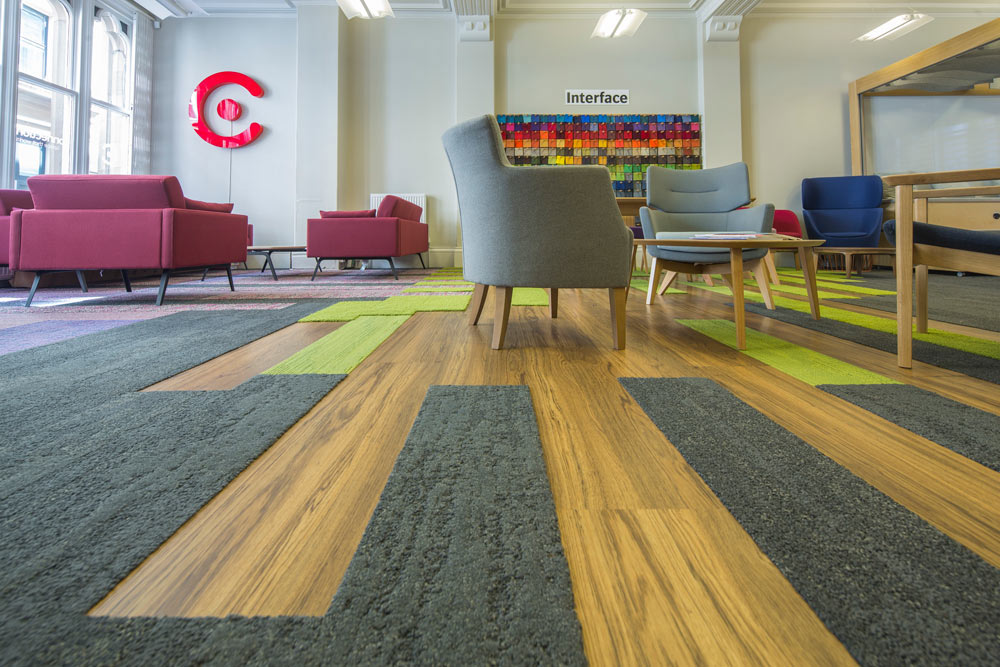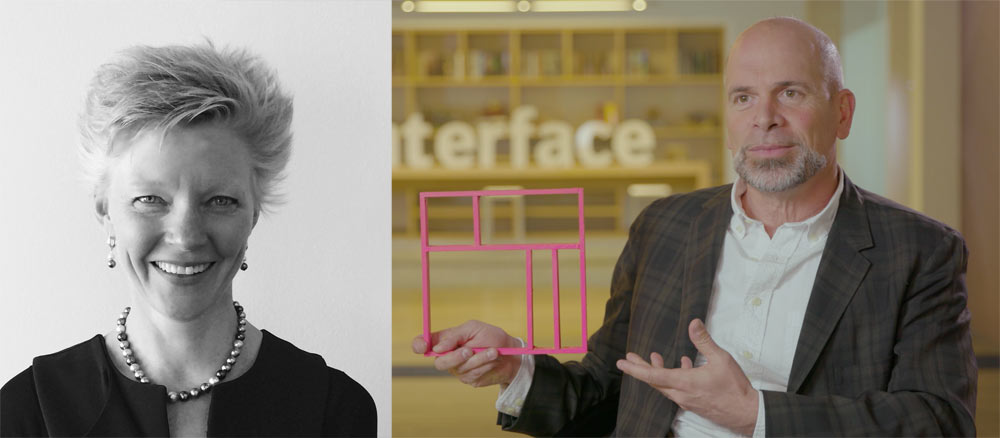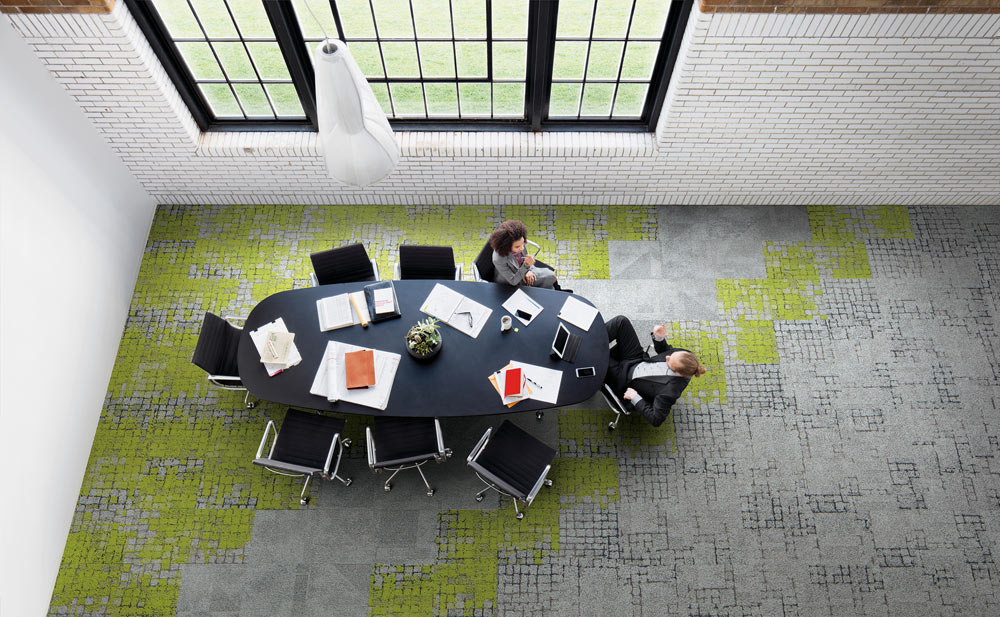Ep. 44: Clever Extra - Designing Positive Spaces
In this special Clever Extra, instead of focusing on a designer, we're tackling a subject, and not just any subject... it's one that we are both fascinated with—the evolving workplace. We teamed up with Interface—the commercial makers of modular flooring systems and everyone’s favorite FLOR carpet tiles—to tackle this subject from all angles.
Learn more about Interface’s +Positive spaces initiative here, learn more about their nature-inspired collections here, and check out all of their modular flooring products at interface.com.
Beth Davis and Chip DeGrace
Interface has recently launched a campaign around +Positive spaces™—spaces that inspire, support and accommodate for a healthy and productive workplace. We’re talking to Chip DeGrace, designer, and Chief Design Officer with Interface, and Beth Davis, a specialist in corporate interior design. They both have a lot to say about how to address the needs of the modern workplace. Listen to the episode to hear what Chip and Beth have to say:
We loved hearing about the idea behind +Positive spaces. We all know that our environment impacts us, from our moods to our productivity, and even our health. Through +Positive spaces, Interface is exploring ways in which their modular flooring can help promote thriving, more creative and healthier workspaces through both built environments to the materials used in a space.
“I think really what the most important thing is truly how to understand your client, not only in the present, but in the future.”
The first step is recognizing that nobody works the same, and every job requires diversity of tasks, which can range from small and large meetings, to collaborative brainstorming, to private phone calls, to intense focus. Therefore, the one-size-fits-all office interior is obsolete. The office needs to ebb and flow, to move with the rhythm of those that work there, adapting to their needs. Today’s interior designer has their work cut out for them: not only do they have to anticipate all the possible uses of a space, but also understand that some of the designing needs to be done after the designer’s job is over and the workers take control of their space.
Watch Chip DeGrace talk about Interface’s holistic view of design, and how designing spaces with the workers is the key to a successful +Positive spaces:
Another contributing factor to a successful +Positive spaces is biophilic design. Interface is very focused on creating environments that are inspired by nature, helping workers feel less like they’re trapped in a dank, grey cubicle, and instead are being invigorated with sunlight, lush greenery and natural materials. Their new Global Change and Human Connections collections are focused specifically on this idea, using organic colors (think of the colors of daylight, deserts), nature-inspired textures (lush forests and foliage) and other urban-inspired patterns (like cobblestones and turf).
“A positive space that’s being designed today is not monolithic, it’s variable and can provide all of those, sort of micro environments, so that the people can work better, heal faster, learn more effectively… That’s not some decorating trend; [it’s] is backed up by real data—for people to be empowered and to have control over their day and their space.”
Moss, Paver, Sett in Stone and Kerbstone from the Human Connections collection
Raku and Ground from the Global Change collection
Chip explains, “Both Global Change and Human Connections contribute to the creation of +Positive spaces with their modular vocabulary that has biomimetic attributes, supporting biophilic design. Each collection delivers its own unique aesthetic. Global Change offers a sophisticated but organic global feel, while Human Connections provides an edgy, urban grit, associated with tight-knit and modern communities.”
Special thanks to Tai Navares for editing this episode.
Music in this episode courtesy of El Ten Eleven—hear more on Bandcamp.
Shoutout to Jenny Rask for designing the Clever logo.












